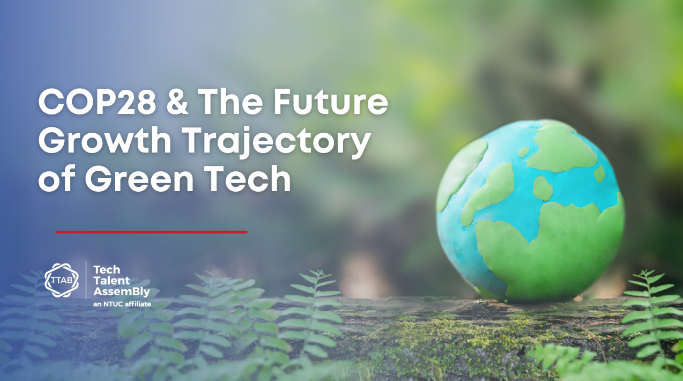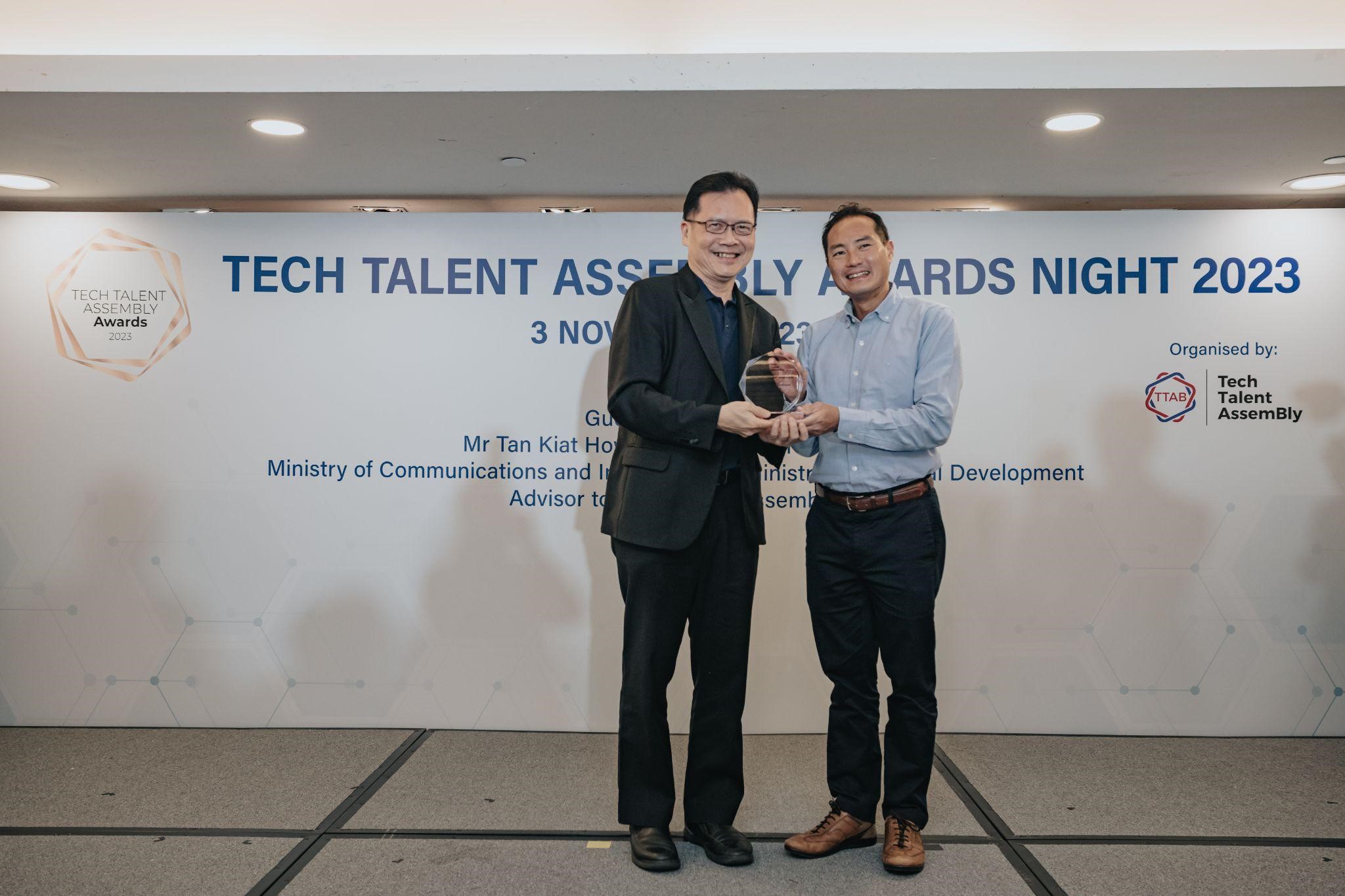COP28’s Impact on ESG and Green Tech Startups in Singapore
Amid much controversy, the call for countries to “contribute” to the “transitioning away from fossil fuels
How COP28 Has Changed Green Tech Forever
Amid much controversy, the call for countries to “contribute” to the “transitioning away from fossil fuels” was finally embedded into the COP28 agreement. Experts agree that the current agreement is filled with loopholes that can be exploited by the natural gas industry, despite claims that the agreement was meant to serve as a necessary bridge to help the renewable industry grow.
But does this mean that the fight to restrict global temperature increases to 1.5°C is over? Not quite. Regulatory changes in the coming years will likely change the daily operations of businesses forever. While none of us can change the world on our own, those who wish to contribute in their own way can seek out opportunities that are expected to grow rapidly in the coming years.
ESG and green-related industries expected to grow beyond 2024
Greater ESG reporting adoption expected beyond 2024
Sales of ESG tracking and reporting solutions are expected to grow at a CAGR from 19% to 30% from 2023 to 2028, even surpassing US$1 billion in the coming year. Experts regard 2024 as the tipping point for ESG reporting, especially since reporting requirements across the EU, US, Asia, Australia, and the UK come into effect. It’s not just governing bodies who are exerting pressure as well, as Gen Z employees surveyed by Deloitte showed that 50% of them are pushing employers on environmental issues, with 42% willing to switch jobs due to climate concerns.
Mandates for ESG reporting in Singapore and Southeast Asia
Though ESG development within Southeast Asia is still in relative infancy, the region has been flagged as one of the most vulnerable regions to climate related threats such as rising sea levels, droughts, and heatwaves. In other words, businesses that resist reporting may eventually be forced to do so one way or another as operations become increasingly impacted by a warming environment.
Furthermore, the Singapore Exchange (SGX) is also leading ESG in Southeast Asia by mandating ESG reporting for finance, agricultural, energy, food, and forest product related businesses from 2024.
Increased focus on sustainable food and agriculture
Those interested in food science and wish to contribute to sustainable food supply chains will be heartened to hear that an overwhelming majority of 159 countries signed the UAE Declaration on Sustainable Agriculture, Resilient Food Systems and Climate Action. Considering that agriculture contributes to a whopping 10% of global greenhouse gas emissions, organisations working on meat alternatives, vertical farming, and other sustainable food production methodologies will likely receive greater government support in the coming years.
Locally, Singapore is looking to minimise waste production, especially since food waste amounted to 20% of the nation’s total waste for the past 10 years. With Semakau Landfill expected to reach capacity in a little over a decade (by 2035), expect local authorities to invest more resources in waste reduction as well as alternative waste disposal methods.
Keeping carbon credit markets in check
The UAE also earmarked a staggering $30 billion Alterra Fund at the COP28 in efforts to mobilise private investments in developing countries. This move comes after the carbon credit market fell under scrutiny for failing to enact meaningful change and giving organisations a convenient way to ‘buy’ themselves out of environmental responsibility.
With eligibility criteria for international carbon credits already introduced this year, expect Singapore’s Ministry of Sustainability and the Environment (MSE) as well as the National Environment Agency (NEA) to play an increasingly important role in regulating local carbon credit markets and ensure that companies actually stick to their net-zero commitments moving forward.
Heat and fire mitigating solutions
While we often complain about the sweltering heat in Singapore, it is communities overseas that are actually feeling the brunt of increased temperatures, as heat-related deaths hit record highs in France this year. A hotter and drier landscape is also leading to more numerous forest fires of increasing intensity — burning twice the amount of greenery than they did 20 years ago.
To prevent such catastrophic effects from reaching our island, heat and fire mitigation solutions will need to develop quickly. As a highly developed urban city, Singapore is even more susceptible to heating thanks to the Urban Heat Island effect, where heat is amplified once it reflects off concrete. Projections expect temperatures here to rise by an average of 0.25°C per decade, and up to 4.6°C by the end of the century. Weather pattern monitoring, firefighting deployment, urban planning, and architecture are just some of the professions that can be expected to increase in demand within the coming years.
Clean energy and batteries
With the modern world still powered on electronics, ensuring that the source of power that keeps the world running becomes more friendly toward the environment will be paramount in securing our environmental goals. In fact, the world’s appetite for energy is only increasing, with Asia being one of the fastest growing regions at 3% annually.
There is good news, however. $1.7 out of the $2.8 trillion invested in energy this year went to clean sources, with the EU and other global leaders enhancing their policy support in this area as well. Furthermore, over100 clean energy companies have already established their base on local shores with plans to scale up into the region, with the number of clean energy workers expected to increase by 80% to reach 2,700 come 2032.
Secure a future for your career and our world
The road to a sustainable future may seem daunting, but there is always strength and inspiration to be found in numbers. Witness what the most brilliant minds in tech are doing by following TTAB on LinkedIn, Facebook, or join us in person at TTAB Career Conversations to get up close and personal with individuals spearheading transformative projects in the region.



